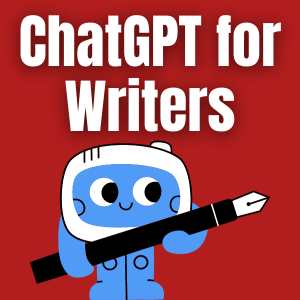Utilize ChatGPT as a versatile research assistant to deepen your understanding and gather insights for your writing projects. If you’re delving into a specific topic or theme, present a concise query to ChatGPT.
For example, if your story involves astrophysics, ask for a summary of key concepts or the latest discoveries in the field. ChatGPT can provide condensed explanations, offer summaries of complex subjects, and even suggest unique angles or perspectives to enrich your narrative.
Whether you’re exploring historical events, scientific principles, or cultural phenomena, ChatGPT can be a valuable resource for acquiring information and generating ideas that contribute to the authenticity and depth of your writing.
The model’s ability to distill information conversationally makes it an efficient tool for writers seeking to enhance the substance and accuracy of their work.
Using ChatGPT prompts for learning and research involves formulating queries that prompt the model to provide information, explanations, or insights on a particular topic. Here’s a step-by-step guide on how to use ChatGPT prompts for learning and research:
Specify the Topic:
Clearly define the topic or subject you want information about. Be specific to receive more accurate and relevant responses.
Craft a Clear Prompt:
Formulate a clear and concise prompt that conveys your question or request. The more specific your prompt, the more focused and helpful the response is likely to be.
Ask Open-Ended Questions:
Phrase your questions in an open-ended manner to encourage detailed responses. Instead of asking for a simple yes or no, ask for explanations, examples, or insights.
Provide Context if Necessary:
If your query requires context or background information, include it in your prompt. This helps the model understand the context and generate more relevant responses.
Experiment with Formatting:
You can experiment with the formatting of your prompts. For example, you can ask for a summary, a comparison, or an explanation. Adding variety to your prompts can yield different types of information.
Use Follow-Up Questions:
If the initial response is not sufficient or if you need more information, use follow-up questions. Build upon the model’s responses to delve deeper into the topic.
Evaluate and Refine:
Evaluate the responses critically. If the answer is not accurate or lacks depth, refine your prompt to provide more clarity or specify the aspects you’re interested in.
Combine Prompts for Complex Topics:
For complex topics, consider breaking down your queries into smaller, more manageable parts. This can help you receive detailed responses and understand different facets of the topic.
Review and Fact-Check:
After receiving responses, review the information and fact-check when possible. While ChatGPT provides information, it’s essential to verify critical details, especially for academic or research purposes.
Save Useful Information:
If you receive valuable insights or information, consider saving the relevant parts for future reference. This can serve as a quick reference when you revisit the topic.
ChatGPT Prompts for Learning & Research
Concept Explanation:
“Explain the concept of [insert topic] in simple terms, providing key insights and examples.”
Historical Overview:
“Provide a brief historical overview of [insert event, era, or figure], highlighting key milestones and impacts.”
Compare and Contrast:
“Compare and contrast the similarities and differences between [insert two subjects, theories, or approaches].”
Case Study Analysis:
“Analyze a relevant case study related to [insert topic], exploring the challenges, solutions, and outcomes.”
Explore Recent Developments:
“Investigate recent developments in [insert field or industry], summarizing their significance and potential implications.”
Pros and Cons Evaluation:
“Evaluate the pros and cons of [insert technology, strategy, or theory], considering its impact and limitations.”
Summarize Research Paper:
“Summarize the key findings and arguments from a research paper on [insert topic].”
Explain Scientific Principle:
“Explain the underlying scientific principle of [insert phenomenon or theory], breaking it down for better understanding.”
Explore Cultural Significance:
“Explore the cultural significance of [insert tradition, artifact, or practice], considering its historical and contemporary relevance.”
Research Methodology Overview:
“Provide an overview of common research methodologies used in [insert field], highlighting their strengths and limitations.”
Future Trends Prediction:
“Predict future trends in [insert industry or field], considering current developments and emerging technologies.”
Explore Philosophical Ideas:
“Explore the key philosophical ideas of [insert philosopher], discussing their impact on various fields.”
Ethical Considerations:
“Examine the ethical considerations associated with [insert topic], discussing potential dilemmas and proposed solutions.”
Summarize Scientific Theory:
“Summarize a scientific theory, such as [insert theory], and explain its relevance in contemporary research.”
Explore Cultural Movements:
“Explore the major themes and impacts of [insert cultural movement or artistic period], considering its influence on society.”
Interdisciplinary Connections:
“Identify interdisciplinary connections between [insert two or more fields], discussing how they inform and complement each other.”
Futuristic Scenario Analysis:
“Analyze a futuristic scenario related to [insert topic], considering potential challenges, benefits, and societal implications.”
Explore Environmental Issues:
“Examine current environmental issues, discussing their causes, effects, and potential solutions.”
Summarize a Book or Article:
“Summarize the main points and arguments from [insert book or article] on [insert topic].”
Explore Cultural Diversity:
“Explore the cultural diversity within [insert region or community], considering the factors that contribute to its richness.”
Feel free to adapt these prompts based on your specific learning or research goals and the subjects you are interested in exploring.
Remember that while ChatGPT can provide useful information, it’s important to use it as a supplementary tool and not a replacement for authoritative sources.
Always cross-reference the information obtained from ChatGPT with reliable and well-established sources, especially for critical and factual content.
How to Use ChatGPT for Writers


